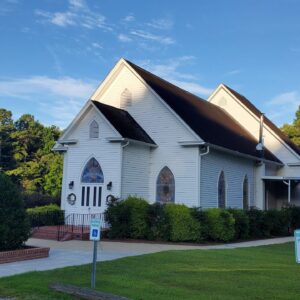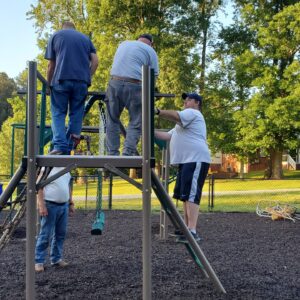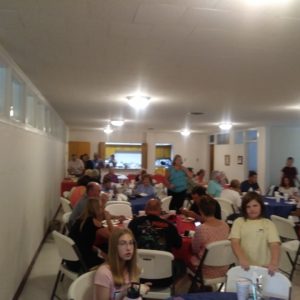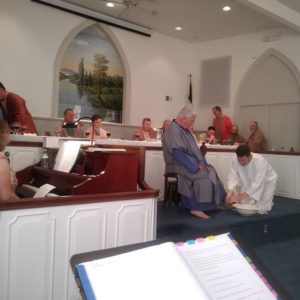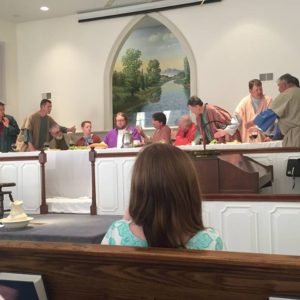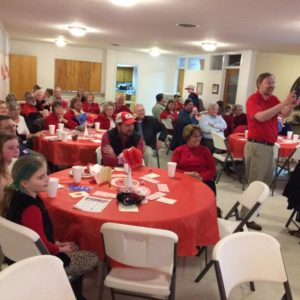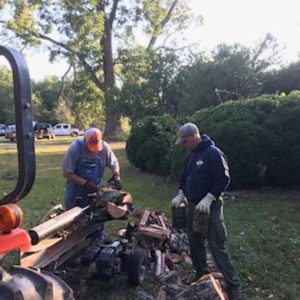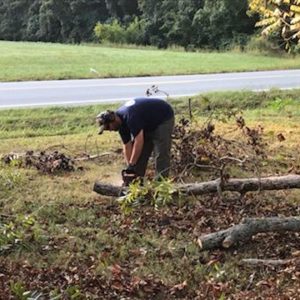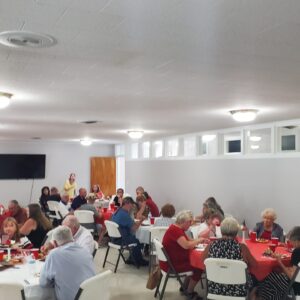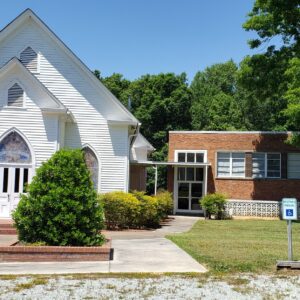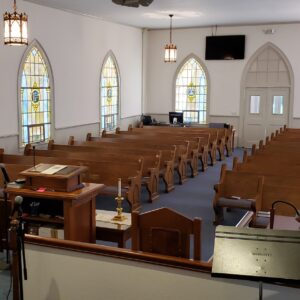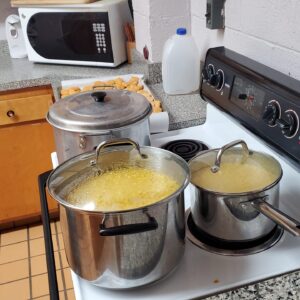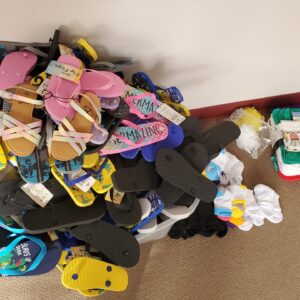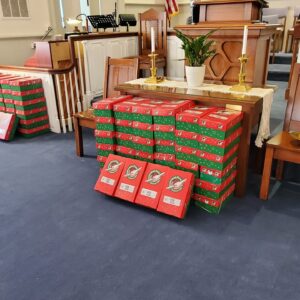The Washing of the Disciple’s Feet
Written April 2018
John 13:1-20
The Gospel of John is the only place in Scripture where this event is explicitly recorded. This is consistent with John’s Gospel account as he often fills in gaps and reveals lessons that Christ gave and actions that He took which the other Gospels did not cover. A great example of this is found with the feeding of the five thousand. It is recorded in all four Gospels (Matthew 14:13-21; Mark 6:31-44; Luke 9:12-17; John 6:1-14). Yet only in John’s Gospel do we find out what happened the next day when Jesus gave his discourse and said “I Am the Bread of Life” (John 6:22-59).
Here we see John focusing in on an event during the Last Supper but in the other Gospels I believe we might be able to gain some context to what was going on as Jesus rose, poured water, and began to wash the disciples feet with a towel that He had wrapped around Himself. In Luke’s Gospel (22:24-30), the disciples, like they had done before, were arguing over who was greatest in the kingdom of heaven.
Luke 22:24 A dispute also arose among them, as to which of them was to be regarded as the greatest.
Though it is not laid out at exactly when these things occurred I could easily see the disciples entering into the upper room and as was the custom of the day that if there was no servant present the first one or two people to arrive would wash everyone else’s feet. Obviously the disciples were not in the mood to do such a task even though foot washing carried with it the symbol and sign of welcome and hospitality. Rather than one of them exercising humility towards his fellow disciples an argument ensued over who was the greatest in the kingdom. The argument would have settled the issue of who should be the one washing the other disciples feet as those who were the greatest would not be asked to stoop to such a low position and activity. Foot washing, during this time, was almost exclusively the duty of slaves or servants. Not only do servants draw the water, wash the feet, and dispose of the water, but it appears that a slave could not refuse to render this service, no matter how old he or she might be. One scholar John Christopher Thomas, says, “Foot washing could be used as a synonym for slavery. To wash another’s feet symbolized the subjugation of one person to another. Those who received foot washing from another were social superiors of those who performed the task.”
The argument could have gotten a little lively and loud. The disciples could have been focused on making their own point and not noticed Jesus rising from the table. The sound of voices could have drowned out the pouring of water into the basin but I have a feeling that silence fell upon all the disciples as Jesus began washing the feet of disciples as the reclined at the Passover table.
You see Jesus, in the act of washing the disciples feet summarized His birth, life, and death. He rose from the table that night just as He rose from His place of perfect fellowship with God the Father and God the Holy Spirit in heaven. Just as He removed His outer garment and laid it aside so did Jesus set aside His glorious existence where He was worshipped by angels and knew no pain, hunger or suffering to become human born in a manger in Bethlehem and live amongst His creation. He took a towel and wrapped in around His body, he outwardly took the appearance of a servant, because in leaving heaven He came into this world, not to be served but to serve others. He poured water into a basin in order to cleanse the filth upon the feet of the disciples, just like He would soon pour out His blood on the cross to cleanse us from curse of sin. Jesus then washes the feet of His disciples, just as He does to each of His children.
Philippians 2:5-9 (NIV) – In your relationships with one another, have the same mindset as Christ Jesus: Who, being in very nature God, did not consider equality with God something to be used to his own advantage; rather, he made himself nothing by taking the very nature of a servant, being made in human likeness. And being found in appearance as a man, he humbled himself by becoming obedient to death—even death on a cross! Therefore God exalted him to the highest place and gave him the name that is above every name,
The quiet as Jesus did this act of complete humility and service was probably deafening. What do you say when your Master and Lord Who has raised the dead, walked on water, and claimed equality with God, is stooping down washing the dirt and whatever filth you might have walked in that day from your feet? Peter is the only one that we have a comment
recorded. He goes from saying you’ll never wash my feet, to wash every part of me. Again the humility and patience of Christ is seen as He lovingly tells Peter that just as any believer who knows Christ as Savior does not need to be “re-saved” but only a daily cleansing from the contaminating effects of sins so he only needed to have his feet washed.
We can imagine the shock and questions that were in the minds of the disciples as Jesus washed their feet, but we can also ponder what was going through the mind of Christ as he bent down and cleansed dirt from the worn skin of the disciples. Did He think, Thomas I know you will doubt my resurrection but you will believe and do great things for My kingdom. These feet that I now wash will take you to India where you will tell of my Gospel and others will know me as Lord and Savior. Did Jesus think when He reached to wash the feet of Andrew of how many places He would preach the Gospel or of how he would be martyred for the faith?
What is probably most sobering is the tremendous contrast between the acts of Jesus and the argument of the disciples. While Jesus went for a towel the others argued about a throne.
While the disciples argued about their own superiority Jesus took the form of a servant
While Jesus served others the disciples looked after their own selves
While the disciples were selfish Jesus was selfless
While Jesus was humble the disciples were haughty
Afterwards Jesus explained things clearly by saying,
John 13:12-17 – When he had washed their feet and put on his outer garments and resumed his place, he said to them, “Do you understand what I have done to you? You call me Teacher and Lord, and you are right, for so I am. If I then, your Lord and Teacher, have washed your feet, you also ought to wash one another’s feet. For I have given you an example, that you also should do just as I have done to you. Truly, truly, I say to you, a servant is not greater than his master, nor is a messenger greater than the one who sent him. If you know these things, blessed are you if you do them.
Jesus used a logic based argument called a fortiori argument. Basically it says “If it is true for the greater, how much more for the lesser.” He pointed to Himself saying I and rightly Your Teacher and Master, and so much more. If then I, the greatest in all the universe, wash your feet then you should see no problem to do just the same to one another, in fact you should be all the more eager to do just the same.
A story is told of one Samuel Logan Brengle, an American Methodist pastor. In 1848 William Booth’s Salvation Army was enlisting men from all over the world, and Brengle felt called to cross the Atlantic and offer his services. A successful minister in a fine church, he gave up everything in obedience to this call. At first, the General accepted him grudgingly and reluctantly. “You’ve been your own boss for too long,” he said. To “instill humility” into him, Booth set Brengle to work cleaning the boots of other trainees. Brengle said to himself, “Have I followed my own fancy across the Atlantic in order to black boots?” (He had once dreamed of being a bishop. He had given up so much!). Then, as in a vision, he saw his Lord bending over the feet of rough, unlettered fishermen – and washing their feet. “Lord,” he whispered, “You washed their feet; I will black their boots”.
Kent Hughes wrote, “If we are to count ourselves as followers of Christ, there must be humble service in our lives. We must be people of the towel.”
How often do we grab for the thrones of this life rather than the towels? How quick are we to demand that we be served while ignoring the opportunities that have been divinely laid before us? The washing of the disciples feet stands as a reminder and a challenge to our lives. It reminds us the lengths to which Christ was willing to serve and be in our lives. Christ did not shy away from the menial task of washing the dirt off the feet of His disciples. Neither does Christ shy away from the filth of the sin that infects our lives. The evil, the sin, and the rebellion are all things Christ washes clean from us just as He did with the dirt of the disciples. That is what Christ, the King of the Universe, the Lord of Lords did and He does the same for us. In the shadow of this amazing and humble act, how can we live with prideful arrogance? How can our lives keep from leaping at the chance to help and serve others.
The washing of the disciples feet is a challenge for us, if we are ones who name the Name of Christ, service must be a key characteristic of our lives. We are challenged to ask, do I wash my neighbor’s feet? Do I wash the feet of my spouse, my friends, my or even my enemies? I believe these verses and this teaching is so important because this is one of the ways in which God had chosen to open the hearts of others and to change the world.




